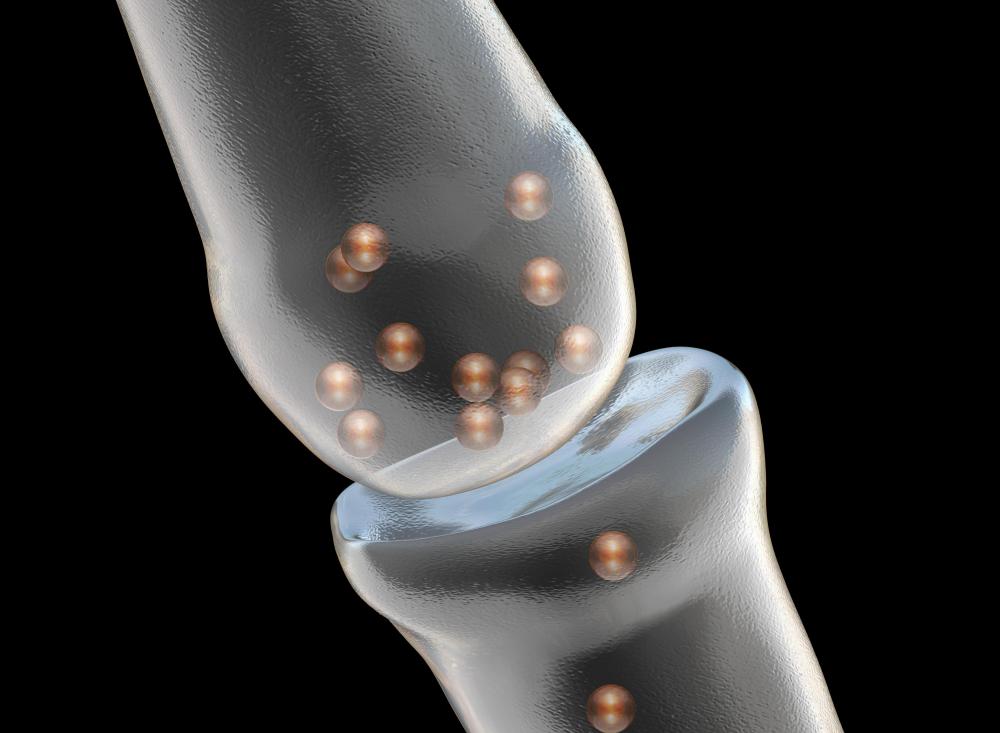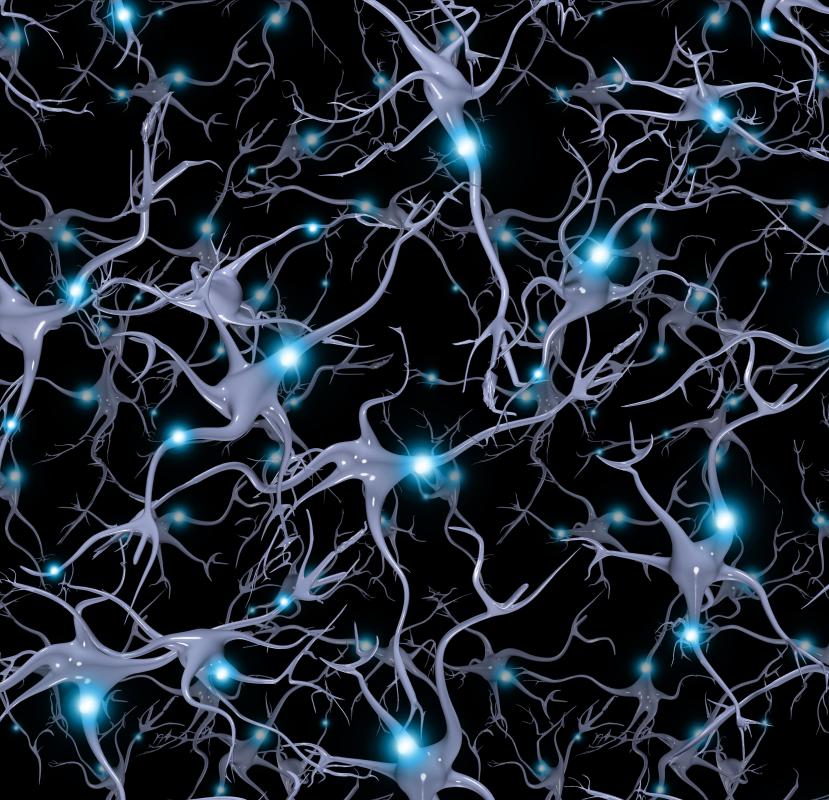At TheHealthBoard, we're committed to delivering accurate, trustworthy information. Our expert-authored content is rigorously fact-checked and sourced from credible authorities. Discover how we uphold the highest standards in providing you with reliable knowledge.
What is a Cholinergic?
A cholinergic is a substance related to the neurotransmitter acetylcholine. This neurotransmitter plays a key role in the functioning of the parasympathetic nervous system along with other aspects of the nervous system. Inside the body, cholinergic substances regulate parasympathetic activity and serve a number of other functions. Certain medications designed to address various conditions are cholinergic, as are compounds like nicotine. A number of toxins also have cholinergic effects.
In one sense, a cholinergic is something that interacts with acetylcholine or its lifecycle in some way. Cholinergics can produce, release, alter, or mimic acetylcholine in the body. They can also act as antagonists, blocking the action of acetylcholine and related neurotransmitters. The body produces a number of compounds that interact with acetylcholine in a variety of ways in order to effectively regulate the functioning of the nervous system. Cholinergic blockers are sometimes used to treat conditions like organophosphate poisoning.

This term can also be used to refer to synapses and receptors that utilize acetylcholine and similar neurotransmitters. Neurons are designed to work with specific neurotransmitters depending on where in the body they are located. Cholinergic neurons are found in the parasympathetic nervous system and in some other other areas of the body, interacting with acetylcholine to send and receive messages. These neurons can act in a variety of different ways to trigger various physical functions.

Pharmaceutical researchers, biochemists, and other scientific researchers have studied cholinergic agents extensively to learn more about how they work. Cholinergics like nicotine have a long history of recreational use among humans, and many researchers are interested in learning more about how these compounds interact with processes like addition and other neurological responses. Toxicologists study these agents to identify cholinergic compounds that are dangerous to humans and find ways to neutralize them to treat people who have been exposed. Historically, there was also interest in using cholinergics in chemical warfare.

In pharmaceutical development, identifying and understanding neurotransmitters is very important. People developing new medications for the treatment of neurological conditions need to know how these medications will behave in the body and how to introduce them in a way that will make them useful to the body. Researchers are thus very interested in learning how to increase or decrease the production of acetylcholine in the body, how to interrupt the neurotransmitter's lifecyle, and how to target specific types of cholinergic neurons to treat particular medical conditions.
AS FEATURED ON:
AS FEATURED ON:















Discussion Comments
Okay, I am just learning about cholinergic mechanisms and its relationship to acetylcholine, so I really should not tell you if your summary of cholinergic’s relationship to the parasympathetic system is correct, but I can tell you this much from what I have just learned about our body’s response to drugs that can affect cholinergic activity.
So these drugs by affecting cholinergic in our bodies, affects important systems and processes such as heart rate, digestion, and bladder functions…
I think that cements the importance of cholinergic and messing with it.
So I am not sure I am following... cholinergic is part of the parasympathetic system in that it takes part in regulating the parasympathetic system secondary to its interactions with neurotransmitters and acetylcholine?
It is interesting that some cholinergics can be toxic to us but others are apparently needed. What are some of the cholinergic responses to our bodies or our body’s responses to it?
Post your comments